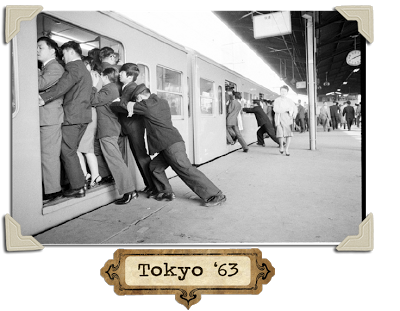What camera did you first use? And what do you use today? What are the parallels -if any- between the formats? Are you a traditionalist or do you embrace new formats and techniques?
"I used Leica’s and Nikons.
Leica M2 or M3 for wide angle lenses and Nikon F for longer lenses. I
never liked the square format of a Rollei- I felt I needed to compose the frame
as I took the picture. I was not going
to find a composition later in the darkroom.
I am not at
all a traditionalist. Now I use a Canon 5D MkII and a Fuji X10 and also an IPhone
I have always believed in using the latest techniques."
A lot of your images portray the youth of the 60s and 70s, what was your
childhood like?
"I had a secure good childhood in the country, which was then shattered
by being sent away to boarding school. I think the misery at boarding school
may have given me the determination to succeed at my own thing."
What made you want to be a photographer? Did you parents influence
you in any way?
"Photography was the last in a line of childhood crazes, like toy trains,
Mechano, radios etc. It stuck as I found
the imagery an added dimension to the technique. My parents wanted me to study engineering
which I did, but were supportive when I became a photographer."
Where there any times you recall that you thought 'if I only had
my camera!'?
"Yes, though on the whole tended to separate Assignment time from Off duty
time, and I am not one of those photographers who always had camera –
Till now when I have an IPhone in my pocket"
Which photograph do you think is your greatest work? And why?
"Possibly this one...
It was a very difficult thing to capture – pitch dark and a very human
situation. I solved the problem by bringing a banana leaf into the hut, tucking
it under the roof poles and bouncing a flash off it."
What do you think makes a good photograph/photographer?
"It needs an interesting subject, a good composition and decisive moment
so that the photographer has something
to say."
Do you think you can learn to take pictures, or do you believe
it has to be in your blood?
"Like being a
ballet dancer, you need natural ability and training.
I don’t mean
you have to go to college – you have to work at it to learn and understand how
to make pictures that move the viewer."
If you could photograph anyone, dead or alive, or any time or place in
history, who or where would it be?
"Phew that’s a hard one. I’d
rather look into the future, but how do we know what is going to happen for
that great picture."
What do you think of mobile phones and 'instant'
photography?
"I’m a great believer in ”Instant” photography, my great
hero was Cartier
Bresson. The problem with mobile
phones is that they are not instant enough,
and all phones with electronic viewfinders suffer from image delay.
In some ways we have moved back more that
forwards."
Who do you see as a great photographer? Is there any picture
that you think "I wish I'd taken that"?
"My heroes
were Cartier Bresson and many photographers who took pictures for “The Family
of Man” – quite a long list.
For me most
photography has lost the immediacy it had and become to contrived and static."
For more information and works go to: http://www.johnbulmer.co.uk/ and http://en.wikipedia.org/wiki/John_Bulmer












Inspirational!
ReplyDeleteEnvy you! Is he still taking photographs ? - Ian via Twitter
ReplyDeleteI rate his work very highly - inspirational !
ReplyDelete